This piece is the first of two blogs examining separatist agitations in Nigeria. The second part, Separatist agitations in Nigeria: The way forward, can be found here.
President Buhari’s health challenges have sparked intrigue in Nigeria and awakened the politics of succession, which revolve around an assumed power-sharing arrangement between the northern and the southern parts of the country. This intrigue is reminiscent of what happened when former President Umaru Musa Yar’adua (of the north) died before completing his term and was eventually succeeded by Goodluck Jonathan, a southerner.
The north-south flare-up occasioned by Buhari’s illness comes amid increasing agitations for the independence of the Republic of Biafra by mostly Igbo groups from the eastern part of the country. Energy around the movement has been growing. For example, Nnamdi Kanu, the leader of one of the Biafran separatist groups, the Indigenous Peoples of Biafra (IPOB) was detained for nearly two years on several charges that included treason and operating a pirate radio, Radio Biafra. He was refused bail, despite several court rulings granting him bail. His prolonged incarceration turned him into a cult figure among his followers.
Agitations around Biafra have drowned out other separatist agitations, giving the wrong impression that Biafra is the only separatist threat in the country. The truth is that there is separatist agitation in virtually every area in the country—underlying the fact that the foundation for Nigeria’s nationhood remains on shaky ground. Among the Yoruba, for instance, echoes of separatism come in different forms—from a direct call for Oduduwa Republic to those championing a Sovereign National Conference to decide if the federating units of the country still want to continue to live together, and, if so, under what arrangements. In the north, there are intermittent demands for Arewa Republic, while some talk of the “north” as if it is “a country within a country.” In the Niger Delta, apart from the demand for Niger Delta Republic, shades of separatism are embedded in the demands for “resource control” by regional activists. In essence, there is a fairly generalized feeling of alienation and dissatisfaction among the various constituents of the Nigerian federation, a situation that has also deepened mistrust and incentivized separatist agitations. However, because there has never been a referendum in any of the areas agitating for separation, it is difficult to know whether the leaders of the various separatist groups actually reflect the wishes of the people of those areas or whether the agitations are mere masks for pursuing other agendas.
The separatist agitations took a new turn on June 6, 2017 when a group of northern youths under the aegis of Coalition of Arewa Youths gave the Igbos until October 1, 2017 to leave the 19 northern states in what they called The Kaduna Declaration. They also said an inventory of assets owned in the north by the Igbos would be taken and confiscated at the expiration of the ultimatum. The so-called Kaduna Declaration further heightened the tensions and the social distance among Nigerians.
Though there is no known research on the economic impacts of these tensions and separatist agitations, it can be speculated that they may be having a dampening effect on commerce. For instance, shortly after the quit notice on the Igbos in the north there were reports that some Igbos that dominate the retail trade in many cities in the north had already started relocating to the east. It can also be assumed that the northerners in the southeast, who dominate the cattle trade market in the area, are likely to be very cautious, given the level of tensions and stand-offs.
Explaining separatist agitations
Structural disparity
There is a big disparity in geographic size and population among the various ethnic, religious, and cultural groups in Nigeria, which makes notions like “fairness” and “justice” relative and contentious when it comes to access to power and the allocation of investments by the federal government. For instance, the northern part of the country constitutes about 79 percent of the country’s land mass and an estimated 53.6 percent of its population. The north is, however, much poorer than the south and similarly lags behind the south in education and other modern indices of development. For this reason, some people in the north believe that the region should control a majority, if not all, governance power. Some people from the south, on the other hand ridicule this idea as part of north’s “sense of entitlement” and desire to dominate the south politically. Thus, power sharing and access to privileges at the federal level are often at the heart of the north-south conflict.
Transition from dictatorship to liberal democracy
Separatist movements are a global phenomenon, as seen in the 300-year-old Scottish separatism movement and the long-time Quebec separatism in Canada. Thus, it is not unusual for some form of separatist agitation to form in low-trust, multi-ethnic, and multicultural societies such as Ethiopia, the Democratic Republic of the Congo, Mali, and Morocco.
The desire for groups in a diverse country to clamor for self-determination is, in the case of Nigeria, exacerbated by the fact that in newly democratizing states, there is often a tendency for pent-up feelings—that were not allowed expression during periods of dictatorships—to be released under the freedom of speech guarantees of liberal democracy. Since virtually every part of the country has an institutionalized memory of hurt and feelings of injustice that it wants addressed, such freedoms of expression understandably sometimes include separatist threats—sometimes as bargaining chips. It is not surprising, then, that democracy in fragile states can, in the short term, aggravate the structures of conflict, though it also, in the long run, presents the best opportunity for peaceful resolution of such conflicts.
Inability to conclusively resolve group grievances: Bargaining chips?
Nigeria seems to struggle with the skill to conclusively resolve grievances by several groups in the country. One of the consequences of this is that many groups appear to have institutionalized memories of hurt or perceived sense of injustice, which they popularly express as “marginalization.” This inability to conclusively resolve group grievances has contributed to the rise of the notion that only groups with the capacity to hold the state to ransom will have their grievances addressed. For instance, some believe that the Yoruba-led National Democratic Coalition (NADECO), which vigorously challenged the annulment of the 1993 election, made the country “ungovernable,” and thus influenced the concession of the 1999 election to the Yoruba.
Similarly, many believe that the protracted violent agitations of the militants in the Niger Delta played a role in the choice of Goodluck Jonathan of the Niger Delta to be the running mate of Umaru Musa Yar’adua in the 2007 elections in the country. Again, many believe that the economic incentives offered to former militants in the Niger Delta to quell militancy and destruction of oil pipelines in the area may have had the unintended consequence of incentivizing insurgencies and violent agitations. In the same vein, some politicians from the south such as some supporters of former President Jonathan interpreted the Boko Haram challenge in the northeast as the north’s strategy of laying overwhelming claim to its “entitlement” to the presidency in 2015. Thus, it is difficult to know the extent to which separatist agitations are mere bargaining chips for groups’ assumed entitlements versus true attempts at succession.
The ethnic factor
Ethnicity is often used as a veneer by the elites to mask their intra-elite and intra-class struggles over power and resources. Over time, though, in Nigeria ethnicity has acquired a more objective character, tending towards more or less an ideology and a prism through which most government measures are filtered. It is also a potent instrument of mobilization. For instance, the fact that Nnamdi Kanu was detained for a long period of time and denied bail despite court rulings for him to be so released stoked ethnic solidarity, even from people averse to his brand of rhetoric. The more his ethnic brethren use the refusal to grant bail as another instance of injustice against the Igbo or more evidence of Buhari’s alleged hatred of the Igbo, the more Buhari’s “kith and kin” from the north feel compelled to defend one of their own. The dominant ethnic groups routinely use threats of secession as bargaining tools when things are not going their way.
Separatists tap into group grievances
Separatist movements feed on local grievances by magnifying them or making whatever obvious benefits their in-groups get from the Nigerian federation to appear less than what other parts of the country get. This makes it easier for them to position themselves as liberators or even messiahs to such groups. In this way, separatists, including Biafra agitators, often use a shared victimhood narrative as a tool of mobilization and bond-building among the people they claim they are trying to “liberate.”
For instance, Biafra agitation gained traction after Buhari gave an address at the United States Institute for Peace (USIP) on July 22, 2015 where he created the impression that he would discriminate against the Igbos for not voting for him in the 2015 election. Similarly, Buhari’s transfer of suspected Boko Haram prisoners from elsewhere in the country to a prison in Igboland early in the life of his government—without offering any explanation—was interpreted by the Biafra agitators as more evidence that he hates the Igbos or that he has interest in exporting jihadism to Igboland. Biafra agitators have labelled Nigeria a zoo and too often chose to see nothing good in the Buhari government or even concede that the Igbos have benefitted anything from the Nigerian federation.
Trajectories
Nigeria’s separatist movements attract a “mixed multitude:” some are in it for personal gain; some use it as a bargaining chip; and others are in it for full regional autonomy or secession. At the same time, there are many internal contradictions within each separatist area that it is not at all clear that if honest conversations and referendums are allowed that the forces of separatism will carry the day. Largely because of this—and also because of the contradictions within the separatist movements themselves—many surmise that the various separatist agitations, if not unnecessarily inflamed, are likely to wither on their own as the country’s democracy matures, the economy improves, and citizens move on to other challenges.
Note: Jideofor Adibe is an associate professor of political science at Nasarawa State University, Keffi, Nigeria. He is the founding editor of the quarterly peer-reviewed academic journal African Renaissance, and co-editor of the bi-annual academic journal, Journal of African Foreign Affairs. He is also a weekly columnist with Daily Trust, one of Nigeria’s leading national newspapers and the Executive Director of the think-tank, ROGAN Leadership Foundation. The author can be reached at [email protected]. This blog reflects the views of the author only and does not reflect the views of the Africa Growth Initiative.
The Brookings Institution is committed to quality, independence, and impact.
We are supported by a diverse array of funders. In line with our values and policies, each Brookings publication represents the sole views of its author(s).
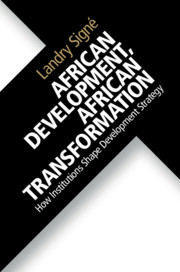
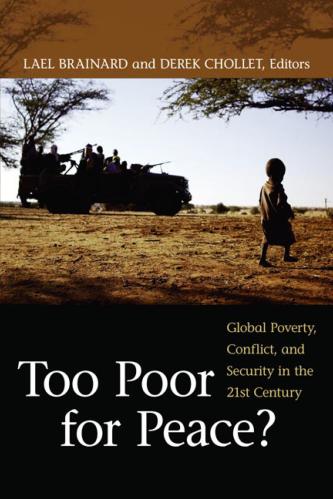
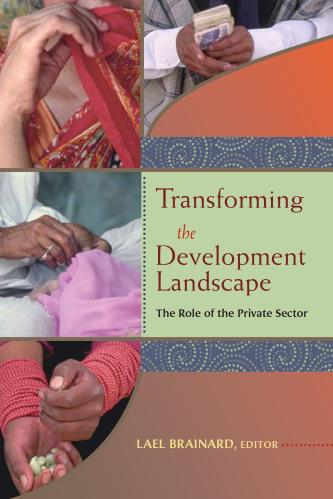
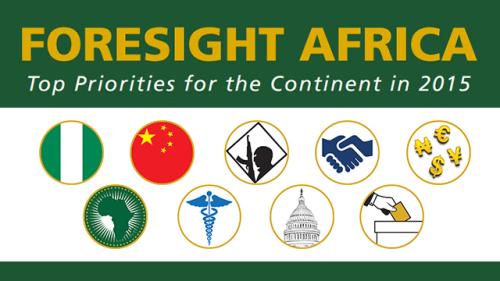
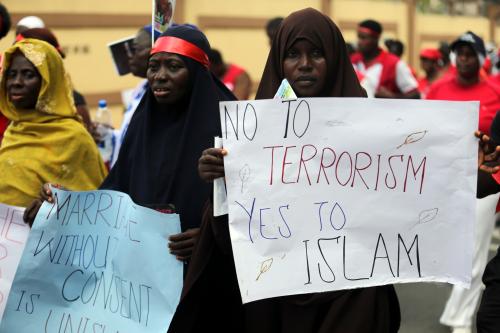
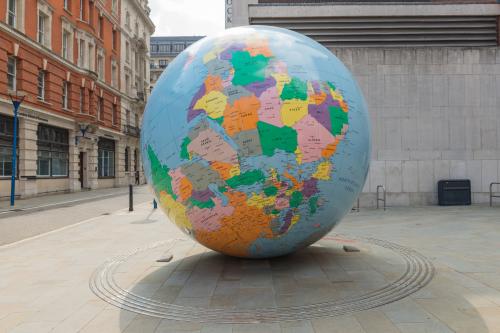

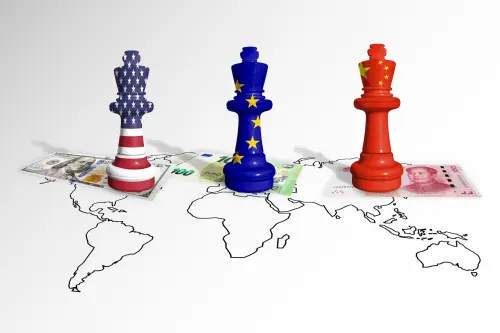
Commentary
Separatist agitations in Nigeria: Causes and trajectories
July 12, 2017